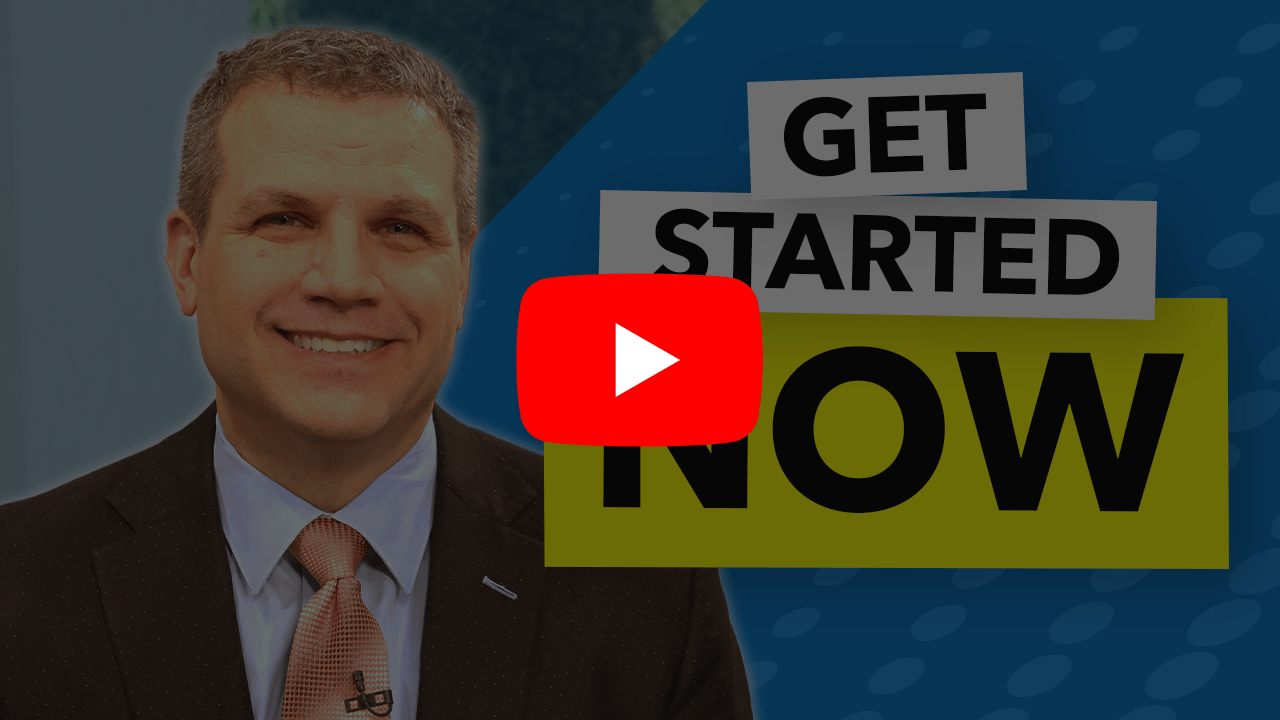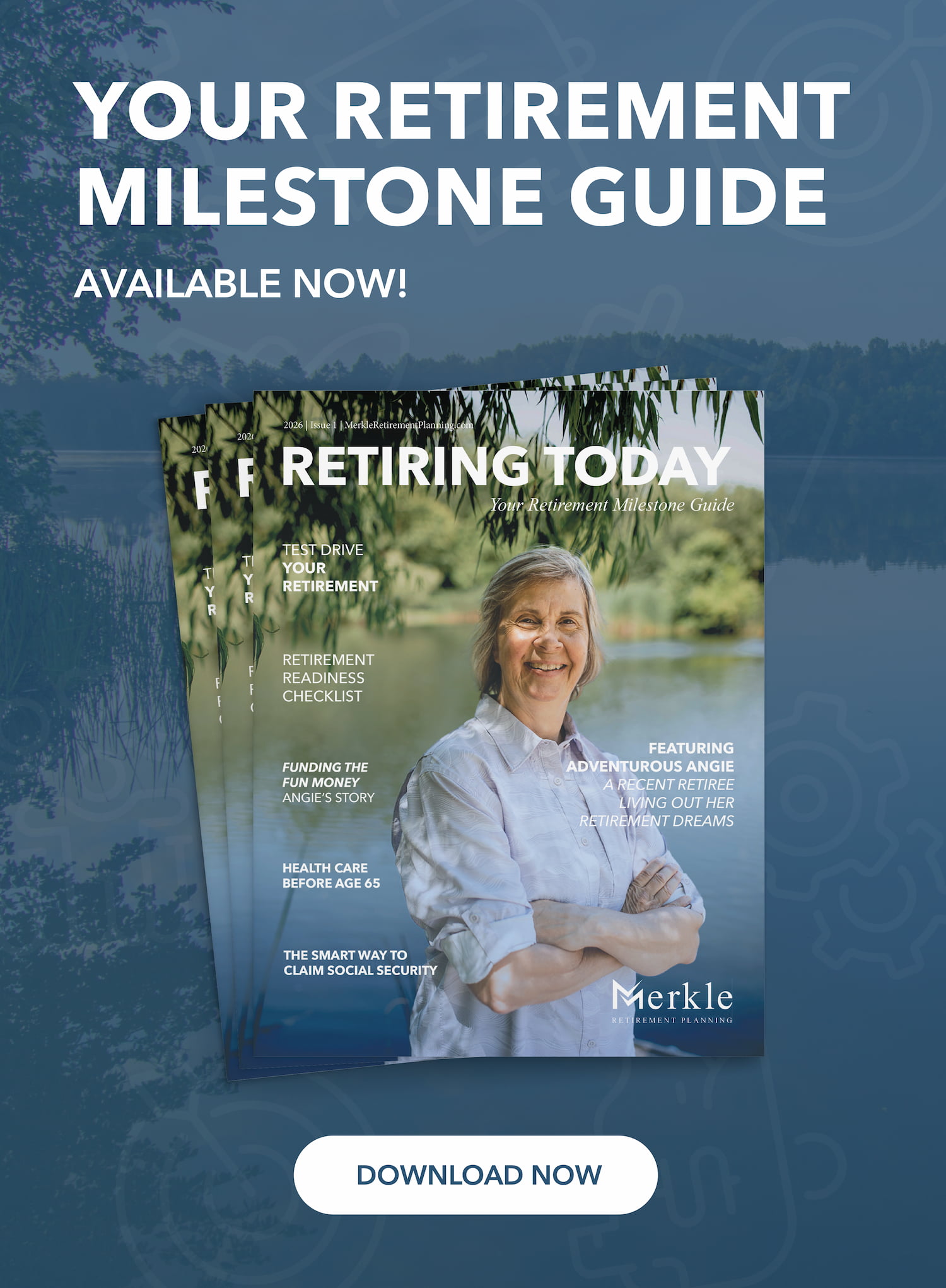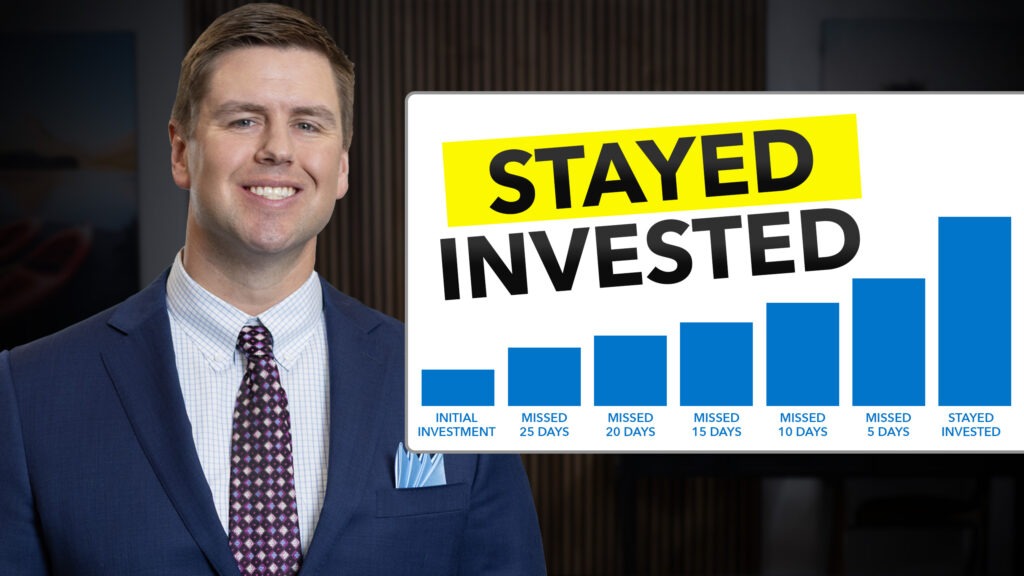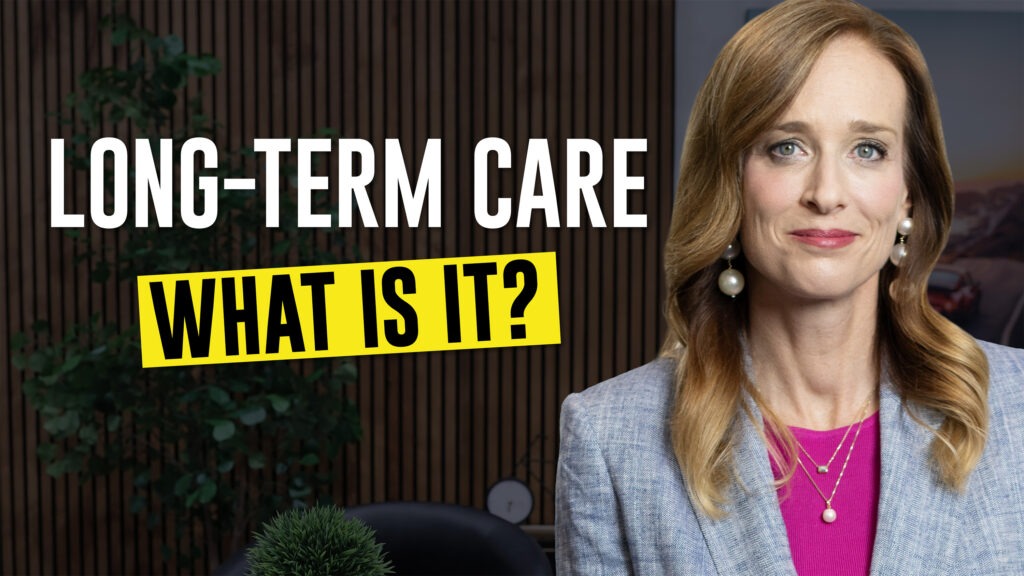Retirement Planner Loren Merkle discusses the critical topic of legacy planning and retirement. Discover the essential documents and strategies that can ensure your legacy is preserved according to your wishes.
– Learn why almost everyone needs a legacy plan, regardless of the size of their assets.
– Understand the misconceptions surrounding wills and trusts and the advantages of each in estate planning.
– Discover the three often overlooked but crucial documents for legacy planning: Medical Power of Attorney, Financial Power of Attorney, and Revocable Trust.
– Gain insight into protecting your loved ones and ensuring your affairs are in order with proactive planning and organization.
–––––––––––––––––––––––––––––––––––––––––––––––––––––––––––––––––––––––––––––––––––––––––––––
Plan Your Legacy with These Three Documents
TRANSCRIPT
Molly Nelson [00:00:02]:
Three often overlooked legacy planning documents, next on Retiring Today. This is Retiring Today. I’m Molly Nelson, here with Loren Merkle. He’s a CERTIFIED FINANCIAL PLANNER™, a Certified Financial Fiduciary®, and a Retirement Income Certified Professional®. Today, we’re talking about how you have to rethink things as you get closer to retirement. And we’re focusing on legacy planning. Loren, retirement in itself is a mindset shift.
Loren Merkle [00:00:41]:
Retirement is a mindset shift because you’re going to be engaging in things that you’ve never had to engage in before. You’re going to have to make decisions that you’ve never had to make before. So, of course, we have to start rethinking all of the different financial ways that we make decisions. Just if we take it to the basic, I mean, you’re not going to be making money from the employer anymore, so you’re going to have to figure out a way to supply yourself an income from your investments, Social Security and or pension so you can still engage in the lifestyle that you want to because it’s not coming from the employer. So there’s a lot of different things that are taking place, decisions you never had to make. We have to rethink all of the different ways we process this information.
Molly Nelson [00:01:20]:
Yeah, we’ve put all the different ways you have to rethink retirement into a series of workshops. It’s called our Rethink Retirement Series. The website is on your screen right now. If you go there, you’ll see some great resources about income, health care, taxes and more when it comes to rethinking retirement. But today we’re going to focus on legacy planning. So first, let’s go ahead and just define what is a legacy. What is a legacy plan?
Loren Merkle [00:01:42]:
A legacy is any of the financial assets that you might have to pass on once you do pass away. And a lot of people will think, well, I don’t have a whole lot, so do I really have a legacy? If you have anything, we’re talking about vehicles; we’re talking about collectibles, things that you might cherish, that you want to go to a specific person, the 401(k) plan, the IRA, any of those types of investments could be things that you pass on once you do pass away. You want to make sure that it goes where you want it to go, how you want it to get there. That’s why we need to develop a legacy plan, which would involve some legal documents to make sure everything goes as planned.
Molly Nelson [00:02:20]:
Yeah, we want to get to those three often-overlooked documents because that’s a really important conversation we’re going to have today. But what we want to help you do is get ready for retirement. We know that it’s a mindset shift. Loren and the retirement planners here have helped people retire several times, so they know what’s coming, but you don’t because you haven’t retired before. So before we help people think about the mindset shift, let’s talk about where they might currently be thinking or where they might currently be when it comes to legacy planning. And one thing, Loren, that you hear a lot is that legacy planning is for the ultra-wealthy.
Loren Merkle [00:02:48]:
It’s for the ultra-wealthy. I don’t have a big yacht, so I don’t need a legacy plan. Right. That’s the mentality. That’s not true at all. If you have any financial assets that you care about or want to go to a charity or a loved one, that’s it. That means that you need a legacy plan. And it could be $50,000 or $25,000. It doesn’t really matter what the dollar amount is. The dollar amount and what your intentions are could determine what types of documents you incorporate within your overall legacy plan. But everybody has a legacy. Therefore, everybody needs a plan.
Molly Nelson [00:03:22]:
And another current mindset that you sometimes hear is, I don’t need a legacy plan. I’m going to spend it all.
Loren Merkle [00:03:27]:
I’m going to spend my last dollar on my last day. I’m going to bounce the last check I write.
Molly Nelson [00:03:32]:
Oh, that’s interesting. How do you time that out?
Loren Merkle [00:03:34]:
We do hear that. That’s a good plan. But that’s the point: you tell me when your last day is, and this whole retirement planning thing becomes a lot easier. Easier. The problem is that most of us have no idea when our last day is. And that’s probably a good thing.
Molly Nelson [00:03:47]:
Yes, I think so. Yes.
Loren Merkle [00:03:48]:
We don’t know. So whenever it is that you do pass, most likely there is going to be something left over, and again, you want it to go where you want it to go, the most efficient way possible. That plan does not work that well for most people.
Is a Will Enough?
Molly Nelson [00:04:02]:
Another current mindset that you might have and some people have is that a will is enough.
Loren Merkle [00:04:07]:
A will. A lot of people think that a will will take care of everything. I have a legacy plan because I have a will. A will is a basic document that is a good place to start. Sometimes, you can finish with a will if you combine some beneficiary designations. But many people, in most cases, will actually need to go a step further than the will. The will can accommodate some of the wishes that you have, but certainly, it’s not all-inclusive.
Molly Nelson [00:04:35]:
So, to help people get ready for retirement, we want to help some start thinking about how they’re going to shift their mindset when it comes to legacy planning. So, let’s talk about mindset shift number one: There is a plan (even if it’s not yours).
Loren Merkle [00:04:47]:
The plan is either yours, or if you don’t have a plan, the state that you live in certainly has a plan for you. So, for those of you in the state of Iowa, you pass away without a plan. It’s called you pass away intestate. The state of Iowa’s plan is very linear, which means if you have kids, it’s going to be proportionally distributed to your kids, whether or not that’s what you intended. If you don’t have kids and you still have parents alive, it’ll be proportionally designated up to your parents. And if you don’t have parents and kids, it’ll be spread out based on the relationships that you still have alive. Cousins, nieces, nephews, that kind of thing.
Loren Merkle [00:05:22]:
That may be exactly what you intended to have happen to the assets that you had left over, but it may not have. When we’re talking about something so important and final, we want to make sure you want to make sure that it’s going to happen exactly the way that you intend it to happen.
Wills vs. Trusts
Molly Nelson [00:05:39]:
And we hope that when people watch the show, they learn something. We want them to say, hey, I learned something new today, and I think when you talk about the will versus the trust, there’s a lot to learn, and there are some misconceptions that you, I think, are going to do a really good job of shoring up for us.
Loren Merkle [00:05:53]:
There are a lot of misconceptions when it comes to the will and the trust, and we’re going to talk about some of those misconceptions. There are three primary misconceptions about the will and the trust. The first one is whatever passes through the will passes through what is called probate. Probate is what it is; it’s just a legal process to make sure that anything that you have spelled out in the will is going to take place. The disadvantage of probate is it can be more costly on the back end. Setting up a will is not all that expensive. In the state of Iowa, most attorneys could charge you somewhere around $250, maybe upwards to $1,000.
Loren Merkle [00:06:34]:
So it’s not all that much to create a will, but it can cost you a bundle on the backside; anything that goes through probate, most probable estates in the state of Iowa, has to hire an attorney. That attorney can charge up to 2%, and then you have court costs and miscellaneous costs that could add up to 1%. So, just think about anything that goes through the will process. The probate process could cost about 3% of your estate. If you have a trust, one of the benefits of a trust is it bypasses probate. So you don’t have to hire an attorney. In most cases, you may still choose to, but you don’t have to. So you can avoid that up to 2% cost, and then the court fees won’t be so costly.
Loren Merkle [00:07:18]:
So maybe you can avoid that 1% or up to that 1% cost. So, on the backside, once you pass, it may not be as expensive for the estate to have assets go through the trust as it would be if you didn’t have the trust and it went through probate. Now, the disadvantage of trust is that it costs you more to set up. The attorney is going to charge you more for the trust than they would the will. And in most cases, when you have a trust, you’re also going to have a will. So you’re going to have the will, and then you’re going to have the trust. The trust is going to be that primary document and the way that most of your assets transition to your loved ones and charities, and the will will catch everything that the trust does not. So the cost is a big difference, a little bit more on the front side to set up a trust than the will, but it can save the estate a whole bunch on the backside.
Loren Merkle [00:08:12]:
The other difference is, from a privacy standpoint, anything that goes through the probate process is public. In fact, there have to be two public notices of everything that’s going to go through probate. And there has to be time separating those public notices so creditors can make their claims. Everybody can see who wants to see what is going through the probate process in the trust. It can be a private transaction, and this is really important for those who don’t want all of your assets to be publicized or for people to look at what it is that you’re passing on. So this is a really appealing aspect of the trust for many people, especially those who want to be a little bit more private as far as what you are passing on to whom. So, there are three big differences between the will and the trust, and the cost is a big one. The private transaction and then, of course, the ease of transfer in the state of Iowa.
Loren Merkle [00:09:08]:
Anything that goes through probate. The minimum amount of time frame for it to transition through the probate process is about six months. But if you’ve had any experience with probate, it could be 12-18 months.
Molly Nelson [00:09:20]:
Plus, more on the legacy planning mindset shift next.
Voice Over [00:09:35]:
You dream of a happy retirement, but there are some big questions to answer. Do I have enough saved? When should I take Social Security? How will I pay for health care and keep up with inflation? Go to MerkleRetire.com to schedule a 15 Minute Retirement Check-Up Call to talk directly with a Retirement Planner and get answers to your important retirement questions. The first step to your retirement starts with a 15 Minute Retirement Check-Up Call.
Voice Over [00:10:05]:
Do I have enough saved for retirement? When should I take Social Security? Which Medicare option is best? How do I plan for inflation? Sometimes the road to retirement starts with more questions than answers. We’re here to help. Join us for our upcoming Journey to Retirement workshop. Get answers and start your retirement journey with confidence. Our online workshop includes information on Secure Act 2.0 and changing retirement rules. Visit RetireWithMerkle.com to register for an upcoming workshop. Your retirement journey starts now.
Molly Nelson [00:10:46]:
Welcome back to Retiring Today. I am here with Loren Merkle, and we are talking about legacy planning and how you have to rethink a lot of what you thought before retirement when it comes to legacy planning. Let’s go back to that example. You did a good job, I thought, Loren, of telling us the difference between a will and a trust. But I have to tell you, there’s a word I kind of get stopped up on. And it’s the word estate. Cause again, when I say it seems so fancy, I know when I hear estate, I think, oh, that’s rich people stuff. Rich people have estates.
Loren Merkle [00:11:13]:
Many attorneys will say that if your total value of assets equates to $50,000 or more, and again, this is in the state of Iowa, then you do have an estate, and you have an estate that you need to start planning for. And one of the reasons why is because the state of Iowa has a rule that says if your probatable estate is north of $50,000, then it is a mandatory requirement that your estate hires an attorney. And then that’s where that 2% cost comes into like I was talking about at the board. And that’s where a lot of the complications in this timeframe and the whole probate thing really comes into play if you don’t have the proper documents in place now. A trust is not right for everybody, but you need to determine if it is right for you in what kind of role it may or may not play within your overall legacy plan.
Molly Nelson [00:12:05]:
Let’s talk about mindset shift number two: Plan Now for Your Loved Ones.
Loren Merkle [00:12:10]:
We want to plan now because somebody’s going to have to plan again; the state is going to plan for you. You’re going to plan for you. And if the state plans for you, then it’s up to your kids, your loved ones to react. And in that kind of state of mind where they’re grieving for the loss of their parents or their loved ones, and you don’t want them to also have to jump through all of these legal hoops that they’ve never had to jump through before. They have very little knowledge about, and now they are reliant upon an attorney or somebody, a friend or some, some word of mouth that they have to make all of these financial decisions, and things get really messy. We see this time and time again, unfortunately. And this is why we really need to get that plan in place so somebody else doesn’t have to pick up the pieces of the puzzle later.
Molly Nelson [00:12:55]:
And I think I’ve heard you say this before, that this motivates a lot of the people that you sit down with, a lot of the families and individuals we work with, because they’re in that age where their parents are passing away. And if they have had to go through that process and their parents didn’t have a plan, they want to make sure that their kids don’t have to.
Loren Merkle [00:13:11]:
Do the same thing with the families and individuals that we serve. We put together the full comprehensive plan and a legacy plan is a part of that full, comprehensive plan. But most people really don’t start to get serious with their legacy plan until you live through an experience that is rather unpleasant. And many people come to us, and that’s when they really get serious about it because they had a parent who didn’t maybe put all of the plans in place, and the parent passes away, and then six months later, they’re still trying to fit these pieces of the puzzle together and solve the puzzle, this probate puzzle, twelve months later, sometimes even 18 plus months, and they see all the work and effort that goes into it when really they just want to grieve. They want to process the experience that they just went through with their loved ones, and yet they’re distracted by all the nuance that goes into the settling of an estate.
Molly Nelson [00:14:07]:
I think it’s worth noting, too, that putting some of a legacy plan in place is also beneficial to your spouse. If you’re married, we’re talking a lot about your kids, but there are some other things, and it’s maybe not so much the will and the trust, but there are some other things that you talk to people about because a lot of people come to Loren and they say, I just want to make sure my spouse is taken care of when I’m gone. And there are things you can do to help ease that burden for the surviving spouse.
Loren Merkle [00:14:28]:
Recently, there was a couple we met with, and the gentleman, we’ll just call him John. John said I want to make sure that we can have the retirement that we want to have while we’re alive. But when I pass away, I want to make sure that my wife can have the retirement that she deserves as well. And that is one of the number one concerns for married couples is: how do we enjoy this together? They spend a lifetime or many years, in many cases, building what you have. You want to enjoy it to your full capacity, but then you also want to make sure that whoever is left can still have the lifestyle that they want as well. That takes planning. That can happen by accident, but you want to make sure with something as important as that that it does happen, and that does take planning.
Document #1 – Medical Power of Attorney
Molly Nelson [00:15:13]:
So we promised three often overlooked documents, and these are important. So let’s just go through them one by one, because a lot of people don’t think about these, probably because they don’t know all the details on why they’re so important. So that’s what we want you to learn today, is about these documents and why they may be important for you to have as part of your legacy plan. Let’s first talk about the medical power of attorney.
Loren Merkle [00:15:31]:
The medical power of attorney. This is a document that will be used while you’re alive. In fact, when you pass away, it’s no longer valid. But the medical power of attorney will give somebody whom you trust medical decision-making ability, so you become incapacitated. You can no longer make medical decisions on your own behalf. This individual can step in and make decisions based on the directives that you put into it. In most cases, a living will, or sometimes the medical power of attorney will spell out what that person can or cannot do. But it’s ultimately imperative to make sure that somebody you trust who is as knowledgeable as they can be about the medical decisions that they can or cannot make has that power.
Loren Merkle [00:16:13]:
And then that way, you’re not as dependent upon the hospital or the doctors to make those types of decisions for you.
Document #2 – Financial Power of Attorney
Molly Nelson [00:16:19]:
The next one is a financial power.
Loren Merkle [00:16:20]:
Of attorney, very similar to the medical power of attorney, except for the financial documents. So individuals who… An individual or individuals who can make financial decisions for you, do you need to take distributions to continue to pay the taxes for the property, the insurance, keep the lifestyle going? Or are there other decisions, financial decisions that need to be made? This would be encapsulated within that financial power of attorney. And oftentimes, the direct abilities that this individual, that you’re granting these powers, those abilities will be highlighted in that document as well.
Molly Nelson [00:16:57]:
And that’s while you’re living, correct?
Loren Merkle [00:16:59]:
That also is while you’re living. And it becomes invalid once you do pass away.
Document #3 – Revocable Trust
Molly Nelson [00:17:03]:
And the third document we have is a revocable trust. How’s that a little bit different than what you outlined on the board?
Loren Merkle [00:17:08]:
The revocable trust is exactly what the name describes. You can change it, you can revoke it, you can get rid of it, you can amend the details. Within that trust, once you pass, it becomes permanent. So once you pass away, nobody can change it. Then, the directions that you put in that trust should be played out by the trustee that you designate in the trust. So within the trust, you’re going to designate, this is an individual or an individual that you trust to be the trustee, to execute the orders that you have within that trust.
Molly Nelson [00:17:40]:
One thing to talk about with the trust to think about anyway is it can be important for blended families, or maybe if you’re on a second marriage as well.
Loren Merkle [00:17:49]:
The blended family situation is more prevalent than what it ever has been before. Recently, I was meeting with a married couple. They’ve been together for about seven years, but they both have kids outside of that particular marriage. And they said to me, both, and they were in agreement. Let’s call them again, John and Sue. John said, I want to make sure that sue was taken care of if I pass away, but also once sue passes away, this, I want to go to my kids. Sue said the same thing. Sue said if she passes away, she wants John to be taken care of, but then she wants her assets to go to her kids again.
Loren Merkle [00:18:22]:
That doesn’t happen by accident. You need to take specific steps to make sure that that does happen. And this blended family situation is more prevalent than it ever has been before. And if you’re in a blended family situation, you want to make sure that you’re both in agreement to as much as you can, because not always. Do you agree?
Molly Nelson [00:18:40]:
What? No, that never happens in my marriage never happens.
Loren Merkle [00:18:43]:
But the legal documents that you put together do need to be coherent, and they need to represent what each one of you are feeling. So those conversations aren’t necessarily fun, but I can tell you working through it now prior to something taking place is a way better experience than you passing away and then having the kids fight for it or have to deal with all of the mess that you leave by not putting the plan together.
Molly Nelson [00:19:11]:
Yes, and working through it now, when you’re not under duress of someone’s health failing or duress of, you know, all the other things that could be happening, working through it, and with a neutral party, too, either your attorney and or your retirement planner who can kind of look at it through a lens that maybe can help you make some decisions.
Loren Merkle [00:19:26]:
Yeah, or even divorce. We’re talking about death. But what if you get divorced? The gray divorce is a real thing. There’s a lot more baby boomers getting divorced than ever have been before. While things are still good and cohesive. If you can put these things into place for those what ifs, pass away, divorce, whatever that is, the outcome will be more desirable than if you do not.
Molly Nelson [00:19:48]:
This is all part of our rethink retirement series conversation. The website is on your screen right now. We’ve got workshops there. They help get you ready for retirement. They help you get ready for this mindset shift that is this exciting time in your life. As a video about healthcare, there’s a workshop about healthcare, taxes, and much more. We still have one more mindset shift to talk about next.
Voice Over [00:20:15]:
Do I have enough saved for retirement? When should I take Social Security? Which Medicare option is best? How do I plan for inflation? Sometimes the road to retirement starts with more questions than answers. Were here to help. Join us for our upcoming Journey to Retirement workshop. Get answers and start your retirement journey with confidence. Our online workshop includes information on Secure Act 2.0 and changing retirement rules. RetirewithMerkle.com to register for an upcoming workshop. Your retirement journey starts now.
Speaker E [00:20:46]:
Join Molly Nelson and Loren Merkle in Episode 463 of “Retiring Today with Loren Merkle” as they delve into the critical topic of legacy planning for retirement. Discover the essential documents and strategies that can safeguard your financial future and ensure your legacy is preserved according to your wishes.
– Uncover the mindset shift necessary as you approach retirement and reconsider different financial decisions.
– Learn what constitutes a legacy and why everyone needs a legacy plan, regardless of the size of their assets.
– Understand the misconceptions surrounding wills and trusts and the advantages of each in estate planning.
– Discover the three often overlooked but crucial documents for legacy planning: Medical Power of Attorney, Financial Power of Attorney, and Revocable Trust.
– Gain insight into protecting your loved ones and ensuring your affairs are in order with proactive planning and organization.
Merkle Retirement Planning your retirement starts here.
Molly Nelson [00:21:10]:
Welcome back. I’m here with Loren Merkle and we are talking about retirement, how you have to rethink retirement. It’s a mindset shift as you get closer to retirement, mindset shift number three, when it comes to your legacy, is getting organized.
Loren Merkle [00:21:37]:
We have to get organized because if you want to ensure that what you want to have happen once you pass away will actually happen, getting organized is the best way to do that. When we talk about organized, we’re talking about in writing. In writing. So when you pass away, your loved ones, your kids can come in and they can pick up from square one in advance much quicker then if they’re trying to piece everything together from scratch. This means if they gained access to one checking account and then they could see some other credit cards were there, then they had to go track down those credit cards. If you had it all in writing, in as much detail as you can, it will be much easier for the kids.
Make Sure Your Beneficiaries Are Up To Date
Molly Nelson [00:22:17]:
And if you had to give advice to people on a place to start, it would be beneficiaries.
Loren Merkle [00:22:22]:
The beneficiaries is easy. One of the hardest parts about legacy planning is where do you start? This is a great place to start. And beneficiary changes all the time, even if you don’t initiate the change. There’s a story, it’s been a couple years ago now, but a gentleman came in for the very first time. His wife passed away three months prior. She had two 401(k) plans, one with an existing employer, one with an old employer, both about $500,000. So, a million dollars of retirement assets. Neither one of those 401(k) plans hadn’t beneficiary designation.
Loren Merkle [00:22:57]:
So here he is three months later, still trying to gain access to a million dollars of their retirement money, when all that had to have happen is beneficiaries on those 401(k) plans, and it would have been an easy transition. So now, not only was he grieving for the loss of a young spouse, I mean he was the mid-fifties at the time, unexpected. He was going through that grieving process and the struggles of trying to transition this million dollars of money that they had saved. And it doesn’t have to be that hard. But a lot of times with 401(k) plans, beneficiaries can change even though you didn’t make a change, because custodians can change. Maybe it was with company A and now it changed to company B, and then the beneficiaries didn’t transition over. That is something that you need to pay attention to and watch on a consistent basis.
Molly Nelson [00:23:44]:
So it’s almost like beneficiaries can somehow get eliminated. Not necessarily.
Loren Merkle [00:23:47]:
Yeah, not change.
Molly Nelson [00:23:48]:
Your name wouldn’t change, but a new custodian comes in and they don’t get your beneficiaries transferred over with all of your account stuff.
Loren Merkle [00:23:55]:
Yeah, the beneficiary designation didn’t transfer. So now where your 401(k) plan is, you look at the beneficiaries and it says, no beneficiary. And that’s what can lead to a lot of mayhem if you don’t catch it prior to passing away.
Molly Nelson [00:24:08]:
Okay, so what can somebody do right now to make sure that some of this does not happen to them?
Loren Merkle [00:24:12]:
Make sure that you go through a beneficiary, check all the different accounts that you have, but also create a plan. One of the things we do for the families and individuals we serve is we write a comprehensive plan for them. So it covers the income plan, the legacy, the investment, the tax, covers all pillars of the plan. Something happens to them, they pass away, and then their kids come in or the survivors, and they can see all of the detail, but they also have our contact information so they can contact us. And that’s probably the best place to start for them. And then we can help them with all of those different matters that need to take place once somebody does pass away.
Molly Nelson [00:24:49]:
Yeah. So you also write down not only kind of this investment side of things, but you guys help people if they want to get organized with emergency contacts and some of the other things that are part of that legacy piece of the binder.
Loren Merkle [00:25:01]:
Yeah, it’s a part of that overall plan. So, in the back, they can put their will, they can put their trust documents, power of attorney, and any of their information. If they have a spreadsheet of the different bank accounts that they have, or credit cards that they do have, and contact information, all of that can be located in there, which is a lot easier. It’s not uncommon for somebody to come to us and say, I had a life insurance policy, or my parents passed away and they had a life insurance policy, and it took us three months to find that policy. Well, what happens if they never found it? Or what happens if they found it two years later? I mean, there’s a whole lot of things that can happen when people, when your loved ones who survive, you don’t know, so just get them in the know. The easiest way is a written, organized plan.
Molly Nelson [00:25:46]:
Yeah, I know. I’ve heard stories where someone has said, I think my aunt might have left me life insurance, but I don’t know, and I don’t know what company. Then, the retirement planners try to help people track things down. Sometimes they can, and sometimes they can’t. So it just leaves too much up to chance.
Loren Merkle [00:25:58]:
Yeah, sometimes you call the companies, and you don’t really talk to somebody who might know what is going on, and they give you misinformation. Life insurance companies get bought and sold all the time. So maybe it’s a life insurance company that existed 30 years ago but got bought three different times. And tracking that down, it’s very cumbersome, which is why you want to make it as easy as possible now while you can.
Molly Nelson [00:26:19]:
And I think, Loren, with a lot of this stuff, it’s kind of where do I start? This feels a little overwhelming, getting all our beneficiaries updated and maybe getting going on a comprehensive retirement plan. But I think the Rethink retirement series, the workshops, is a great way to get started thinking about all this stuff.
Loren Merkle [00:26:35]:
Yeah, because we go into detail and they’re all about 30 to 40 minutes long, so it’s not a big investment of time. It doesn’t cost you any money. You can view this information from the comfort of your own home, and we go into detail on each one of those six pillars. So if legacy planning is important to you, watch the legacy planning one. If tax planning is important to you, watch the tax planning one. What you’re going to notice though is there is overlap. The decisions you make on your legacy plan can impact your tax plan, can impact your income plan, it can impact your investment plan. So you’re going to notice some overlap, but all of it is going to be valuable information that you can use to help you on your way to retirement.
Molly Nelson [00:27:14]:
You can go to RethinkRetirementSeries.com right now to view those online workshops. This is Retiring Today, and we thank you for watching.
Voice Over [00:27:28]:
Do you wonder if you have enough saved for retirement? Will your money last as long as you do? Will taxes, health care costs and inflation derail your retirement? Get answers. Schedule a 15 Minute Retirement Check-Up Call today. We can cover a lot in 15 minutes, including strategies you can implement now to start your retirement journey. Schedule a call at MerkleRetire.com the first step to a confident retirement starts with a simple phone call.
–––
We are an independent financial services firm helping individuals create retirement strategies using a variety of investment and insurance products to custom suit their needs and objectives. The content and examples shared are for informational purposes only and should not be construed as investment advice or serve as the sole basis for making financial decisions. Individuals are encouraged to consult with a qualified professional before making any decisions about their personal financial situation. Our firm is not permitted to offer legal advice. Investment Advisory Services offered through Elite Retirement Planning, LLC. Insurance Services offered through MRP Insurance, LLC.










